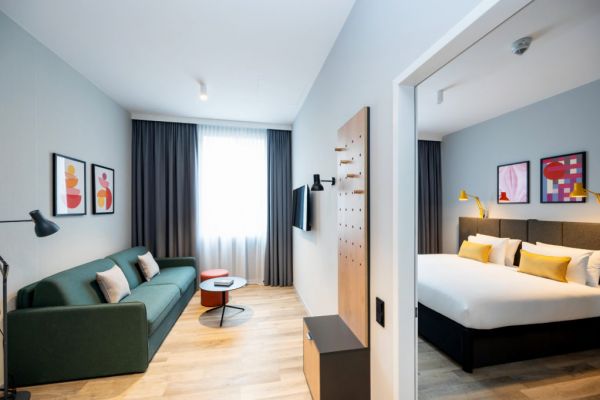The Irish hotel sector saw €350 million in transactions in 2023 – 30% below the historical average, according to Savills Ireland.
The property advisors noted that Irish hotel transactions declined in 2023, largely due to fewer Dublin sales and no Dublin investment activity.
Supply Constraints
The figures show that just 1,200 hotel rooms were added in Dublin in 2023, as supply remains constrained.
Additionally, there was no single hotel sale for €50 million or more in 2023, but Savills claims that regional transactions were very strong.
Regional Transactions
Although inflation and higher interest rates pushed yields up and reduced the value of investment properties, Savills noted that demand for regional hotels persisted throughout the year.
Strong trade, attractive yields, and the significantly higher replacement costs of regional hotels attracted owner operators, hotel groups, and high-net-worth individuals into this segment of the market, according to the property advisors.
Pre-Covid Comparison
Dublin hotel occupancy was back above 80% for 2023, in line with pre-Covid occupancy rates.
The 2023 average daily rate (ADR) of €180 per room was 27% above 2019 levels.
Some regional hotel trade was even stronger, with revenue per available room (RevPAR) for a luxury set coming in around 50% higher than it was at 2019 levels.
Asset Class
Savills noted that hotels have become a more mainstream property investment class in recent years, and Dublin hotels are now owned by the likes of Aviva, Blackstone, Deka, DWS and Union.
The emergence of operators with institutionally acceptable covenants has helped to grow the asset class, with Dalata, Premier Inn and Staycity properties selling at yields of between 3.60% and 5.00% in recent years.
Emergency Accommodation
An estimated 12% of all beds in Fáilte Ireland-registered properties were contracted to the Irish State for the provision of emergency accommodation as of the end of last year.
Additionally, a number of regional counties had over 20% of capacity outside of ‘normal’ and tourist use.
Longer-Term Business
In regional Ireland, hotel beds were mainly occupied by Ukrainian guests.
In contrast, the majority of the contracted accommodation in Dublin was for asylum-seeker and homeless accommodation, which is seen as longer-term business.
Savills believes that most of this Dublin accommodation will not return to hospitality use in the short-to-medium term.
Hotel Pipeline
Although it is difficult to predict new supply, Savills expects average growth of only 3.0% per annum in the Irish hotel pipeline over the next five years.
This would lead the total stock of hotel rooms in Dublin to exceed 30,000 by 2029.
“Twenty twenty-four [2024] transactional activity will grow from last year’s levels, with signs that interest rates have plateaued, providing investors and prospective buyers with firmer foundations on which to make decisions,” said Tom Barrett, director of hotels and leisure at Savills Ireland.
VAT Rate
From its work with Dublin hoteliers and looking at the strong events pipeline, Savills predicts some small RevPAR growth in the year ahead.
While last year’s VAT rate increase from 9.0% to 13.5% was a ‘headwind’ to the ADR, Savills claims that the market was supported by a slowdown in the pipeline of new hotel openings, as well as inbound travel, which is now 2% higher than it was before the pandemic.
“With rising energy costs putting pressure on margins, investing in sustainable practices will enable hotels to reduce their costs, improve profitability and boost their brands,” said Barrett.







